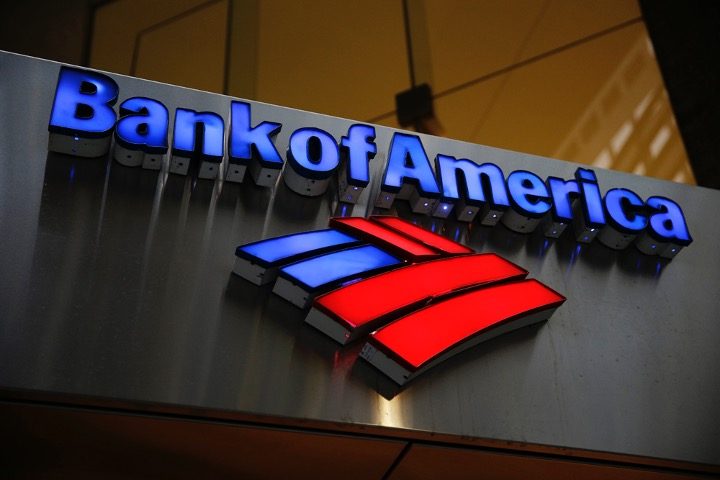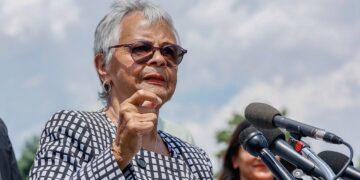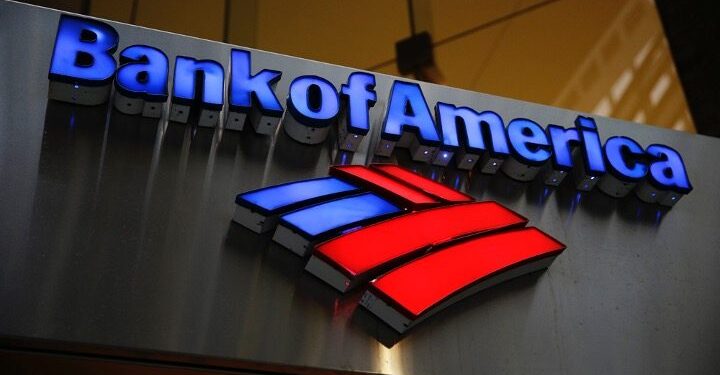
When Bank of America (BofA) arbitrarily and quietly closed the accounts of Indigenous Advance Ministries and one of its church supporters, it afterward claimed that it no longer wanted to serve their “business type.” When BofA closed the account of Timothy Two Project International, it informed the ministry it was because it was “operating a business type we have chosen not to service.”
Another “type” of business that BofA doesn’t want to service is that of “conservative” Christian author, preacher, and podcaster Lance Wallnau. He explained what happened in an Instagram post (which was subsequently deleted):
You won’t believe what just happened to me! My own bank account got frozen by Bank of America for no reason other than being a conservative podcaster.
In order to “unfreeze” his accounts Wallnau was subjected to a series of highly invasive questions about his ministry. He said, “I had to go through a complete marketing audit explaining every dollar of our ministry’s budget,” adding that “It’s not even legal. I did it because I felt like freeing up the money and documenting how screwed up the Bank of America is.”
Wallnau got some considerable assistance last Thursday from more than a dozen state financial officers, who wrote to Bank of America complaining about its continuing policy of discriminating against conservative and religious account holders. Addressing BofA’s CEO, Brian Moynihan, they wrote:
We the undersigned are state financial officials responsible for state investment vehicles that hold financial positions in Bank of America.
We write to express our concerns over Bank of America’s troubling track record of politicized de-banking. Bank of America’s de-banking policies and practices threaten the company’s financial health, its reputation with customers, our nation’s economy, and the civil liberties of everyday Americans….
We are especially troubled by Bank of America’s track record of discriminating against religious ministries. Notable examples include Memphis-based charity Indigenous Advance Ministries, the Timothy Two Project, and Christian author and speaker Lance Wallnau.
To illustrate that this policy of BofA is intentional, the letter noted that “one objective indicator of such a problem is [your] bank’s egregiously low score on the Viewpoint Diversity Score Business Index, the premier benchmark for measuring corporate respect for free speech and religious freedom. Bank of America scored a meager 8% out of a possible 100%.”
Jeremy Tedesco, senior counsel for Alliance Defending Freedom (ADF), the group that has developed the index, explained: “The Business Index exists to inspire companies to adopt a business culture that respects civil liberties.”
He added:
The Index’s 42 benchmarks and suite of model policies are a roadmap for ending viewpoint-based cancellations, discrimination against employees because of their religious and social beliefs, and public advocacy that damages religious freedom, free speech, employee relations, and corporate brands….
We seek to engage America’s largest corporations to create positive and lasting change that protects everyone’s free speech and religious freedom from corporate overreach.
The index was first developed and published in 2022. In 2023 the index scored 75 of the country’s leading technology platforms, banks, financial service providers, and media companies.
With a score of 8, Bank of America ranks near the bottom of 2023’s index, even lower than their 2022 ranking of 10 out of 100. The letter pointed out that its failure to score higher was the latitude granted in the company’s corporate policies to allow wide discretion among its employees to determine just which “types” of business they wanted excluded.
For instance, BofA’s policy states that it can refuse services to any client deemed to “promote tolerance … or hate.” As the letter noted, “These vague terms can be weaponized against clients for their First Amendment-protected viewpoints on hot-button cultural issues.”
The letter noted that the bank assisted in efforts by the Biden administration to learn the names of Americans who participated in activities not approved by that administration:
These numbers paint a bleak picture for Bank of America, which not only de-banks clients for political and religious reasons but also, as noted above, expressly discriminates against employees who desire to give to religious charities.
Moreover, Bank of America’s recent spate of religious account closures and voluntary disclosure of customers’ private financial data as part of the federal government’s improper financial surveillance scheme has drawn significant and adverse attention from the media and the U.S. Congress.
Christians and conservatives weren’t, and aren’t, the only targets for the bank’s discrimination, either. Kansas Attorney General Kris Kobach noted in an April 15 letter to Moynihan that that BofA has also “denied services to gun manufacturers, distributors, and sellers; fossil-fuel producers; contractors for U.S. Immigration and Customs Enforcement; and private prison operators.”
But Bank of America has no problem supporting leftist causes such as the Human Rights Campaign and the Center for American Progress, while preventing its employees from giving to faith-based groups in its employee gift-matching program.
It should be noted that BofA isn’t alone in its religious and political discrimination against the “types” of businesses they don’t like.
In 2022, JPMorgan Chase closed the account of former U.S. Senator Sam Brownback, who now leads the National Committee for Religious Freedom (NCRF). Wrote Brownback:
I went in to make a deposit at a branch here in Kansas about three or four weeks after we’d opened up the account. And the teller there said, “That account’s been closed.” And I go, “What?” and they said, “That account’s been closed. Your funds will be sent to you in a couple of weeks.”
And then later they came back and said, “Well, if you’ll disclose who gives more than 10% of your funds to you and your criteria for supporting candidates as a 501c4 [tax-exempt organization] we’ll consider re-opening up the account.”
According to the Viewpoint Diversity Score Business Index for 2023, JPMorgan Chase scored just 9 out of 100, down from 15 in 2022, while Visa’s score of 10 was down one point from the previous year.
There are bills pending in Iowa and Tennessee to ban these financial behemoths from discriminating against customers over their “speech, religious exercise, association, expression, or conduct protected by the First Amendment to the Constitution of the United States.”
































 Reaction & Commentary
Reaction & Commentary


















